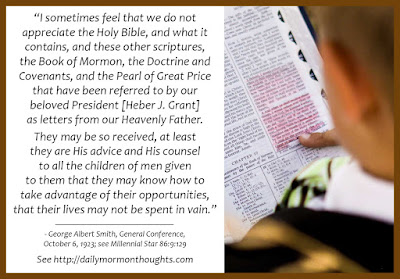"You have at your best followed the example of Joseph Smith, as described by Arthur Henry King, in a talk published in his book, _The Abundance of the Heart_. In that book, Professor King recounted his experience in first reading of the First Vision as it appears in the Pearl of Great Price. Arthur Henry King reminds us that he was not a member of the Church at that time and that his education had taught him to be critical. He thus represents the very people to whom you may be most helpful. This is what he said:
"'I wasn't inclined to be impressed. As a stylistician, I have spent my life being disinclined to be impressed. So when I read his story, I thought to myself, this is an extraordinary thing. This is an astonishingly matter-of-fact and cool account. This man is not trying to persuade me of anything. He doesn't feel the need to. He is stating what happened to him, and he is stating it, not enthusiastically, but in quite a matter-of-fact way. He is not trying to make me cry or feel ecstatic. That struck me, and that began to build my testimony, for I could see that this man was telling the truth' (Salt Lake City: Bookcraft, 1986, pp. 200-201).
"A clear declaration of the truth is powerful enough, because truth exists and there is a Spirit of truth to confirm it. Because you believe that, your writing shows a trust in the clear declarative statement, without jargon, that would bless scholars and their readers in every field.
"Your work of highest value is to lead the children of God to discover the true origin of the Book of Mormon and thus let its message of Jesus Christ change their lives. Because of that, my hope would be that you will keep your focus on that scripture and on the aspects of it which are significant to the question: 'Should I pray to know if this book is truly the word of God, written and abridged by prophets on plates delivered by an angel to a boy who could only have translated them by the power of God?'
"Joseph Smith's account of the coming forth of the Book of Mormon is miraculous. The only place to go to verify a miracle is to God. I pray that your work and your example will lead many to go to Him in the earnest prayer of faith."
- Henry B. Eyring "The Marketplace of Ideas," annual F.A.R.M.S. banquet, 13 October 1994
Click here to read the full address
President Eyring was speaking in this address to members of the "Foundation for Ancient Research and Mormon Studies" (FARMS) organization. He encouraged their use of the Book of Mormon to help bring interest and conversion. He also taught of the power of pure and simple testimony in reaching out to those who are sincere in heart.
I heard Dr. King speak about the matter Elder Eyring references. King was a brilliant British scholar, a renowned Shakespearean expert, who understood language. He compared Oliver Cowdery's flowery, educated description of the translation process, contained in a footnote of the Pearl of Great Price, with Joseph's simple and pure narrative. It was a profound lesson to me of the power of pure and simple testimony.
Leading others to Christ through the Book of Mormon is an important and powerful message, one we need to remember and implement.
(Compilation and commentary by David Kenison, Orem, Utah, 2019)
































